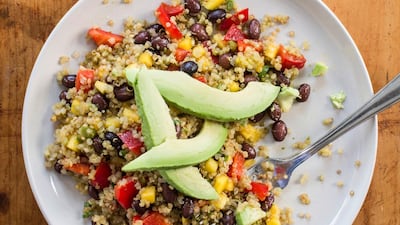Anyone who fasted during the holy month will have experienced a significant shock to the system, as 11 months of dietary and sleeping habits were thrown into disarray. And now you need to readjust to normal routines again. No matter how careful you might have been to not overindulge at iftars and suhoors, or to maintain disciplined regimes with exercise and sleep, the transition that began with the Eid celebrations needs to be carefully managed in the coming days.
“Your metabolic process undergoes a change because of the difference in eating schedules and timings,” cautions Jasna Kizhakkeveetil, a dietician based at Aster Clinic in Dubai’s Al Qusais. “It is essential to ensure that you make a smooth transition from fasting into a regular dietary routine.”
Balancing it all out
Ruba El-Hourani, a clinical dietician at RAK Hospital, recognises that returning to a normal eating routine can be far from straightforward. “As we transition from one diet routine to another,” she advises, “the most important thing to focus on is a healthy diet that is balanced and includes all food groups – carbohydrates, fats and proteins, with more focus on vegetables, healthy grains and lean protein.”
Carbs are constantly in the headlines these days, and are often blamed for the worldwide obesity epidemic and for causing chronic illnesses such as Type 2 diabetes and heart disease. But they’re not all bad. We should avoid the white and beige varieties – processed sugars and starchy breads, etc – as much as possible, but green carbs in the form of fruit and vegetables can be extremely useful to our bodies as sources of energy and dietary fibre.
Rather than three big meals, Nour AlMheiri, clinical dietician at Healthpoint, suggests a series of smaller meals over the course of the day. “If we go back to our eating habits before Ramadan, which is three big meals and sweets in-between, our body will go into shock.”
The sudden rise in sugar and active fat absorption will cause fatigue and sleep loss. “This is what we should prevent ourselves from doing. Otherwise it will be difficult doing the simplest tasks and our daily jobs,” AlMheiri warns. “I recommend trying to eat every four hours while steering away from fat and sugar. This is very important.
Adjusting back slowly
“The good thing about Ramadan is that it helps us recognise our body’s signals for when we are hungry and when we are full,” she adds.
One of the best things to do is consume bigger breakfasts and restrict the amount of food you eat at night. “Avoid taking in too many calories during meals consumed after 7pm since the body is not engaged in any kind of physical activity. This is essential to get the body used to eating at regular hours,” says AlMheiri.
El Hourani also advises that you stay away from fried and fatty foods. “Try to avoid foods that have simple sugars and meals that are rich in fat and high in calories. People should also reduce their caffeine intake, as well as fizzy drinks.”
_______________
Read more:
The importance of getting enough sleep during Ramadan
Five last-minute staycation offers for Eid Al Fitr
Eid Al Fitr 2018: the 24 best things to do this weekend in the UAE
_______________
This is advice echoed by Kizhakkeveetil, who adds that we should "try to consume a lot of fruits and vegetables as they are detoxifying for the body and tend to provide all essential nutrients. "They are a healthy way of filling up the stomach so that you do not indulge in too many unhealthy food items. Salads must be a part of every meal," she says.
Getting back to fitness
A healthy exercise regime is also a crucial, says AlMheiri. "I know a lot of people who stop exercising during Ramadan, so I always recommend going back to an exercising schedule, and if you don't have one, then start exercising. Every week we push starting a regime to the next week, and that next week will never come," she says. "The sooner you start, the easier it is."
Around 90 per cent of her patients have gained some weight during Ramadan, she adds. "Around 4kg to 5kg, because of fasting for more than 13 hours and then sitting on a Ramadan table which has every single imaginable dish and desert. It is always samosas, pakoras harees and all this other food that is full of oil and ghee."

